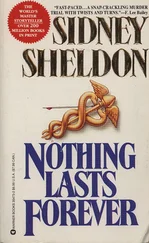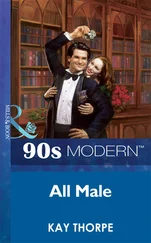He was back on the cool, metal catwalk inside the elevator tower. He'd hoped that he would be all right once he'd gotten to the roof, but it had been nothing for them to ascend the enclosed stairs and cover their own passage onto the roof. By then he had made it around to the iron ladder outside the elevator tower, and when they finally saw him, he was halfway through the door above. Now they could not climb the ladder without exposing themselves, and he had nowhere to go. The elevator that had been on the fortieth floor was headed down. When Leland had peered into the shaft, he had been able to see that they had opened the roof hatch of the car. They had figured out everything, were so close behind him that he had not escaped, he had been delivered.
Leland turned the radio selector switch past channel nineteen to channel nine. He was drawn up in the corner next to the door to the roof, where he would be able to hear them outside as well as watch what was going on in the elevator shaft, for the little it was worth. All they had to do was move their activities to the other bank of elevators, and they had him neutralized. He pressed the "Talk" button.
"Mayday," he whispered. "Mayday. Tell police foreign terrorists have seized the Klaxon Oil building on Wilshire Boulevard. Many hostages. Repeating. Mayday..." And he went through it again. When he released the "Talk" button, the radio began receiving.
"I doubt that that will be effective. Can you hear me? We know where you are. Will you acknowledge this transmission, please?"
Leland pressed the button. "What do you want?"
"I want to strike a bargain with you, a real bargain. These little radios are not very powerful, by the way, so broadcasting alarms from inside an iron cage is probably futile. Are you listening?"
"Yes."
"Stay where you are. We want no more bloodshed. Stay where you are and keep out of our business. We can come after you if we have to. Ah, and you know it won't be possible for us to deal with you lightly."
Leland thought he heard something. "How did you get on to me?"
"You did it to yourself," Gruber said cockily, "when you said you wanted to send the girl down. You heard me say that at the elevator, and you thought I would be quick to believe there was a girl.
"The conversation I referred to in English about the clothing we found — your clothing, I presume — never took place. Possibly it makes no sense to you, but I have found it useful to act on such obscure little impulses. However, now that I consider it, I judge that you do understand. After all, it was you who thought to climb to the roof of the elevator car. Who are you? You are a bold man..."
Why the stalling? Leland had taken the hesitation before the remark about not dealing with him lightly as an indication that the brother of the dead man was asserting himself in unpleasant ways — not exactly a break in discipline, but perhaps a sign. They seemed to have time to burn. 10:50. In an hour and ten minutes it would be Christmas. 3 A.M. in New York. 10 A.M in Europe. The Pope always had a Christmas message — did he appear in public? The biggest nightmare of the Italian police was an assassination attempt against the Pope. But what did the Pope have to do with an oil company building a bridge in Chile?
Leland rubbed his eyes. He had been awake for the start of "Good Morning, America" in St. Louis, 7 A.M. central standard time. In that time zone it was ten minutes to one, Christmas morning. Eighteen hours. If he'd slept on the plane, he would have missed Kathi Logan, who might be home by now, wondering if her telephone recorder had failed. He couldn't waste time hoping she would make something out of a broken connection. They'd kissed like kids. He wanted to get out of here and kiss her again.
Maybe they were only trying to make him think he was safe. In anticipating him, they'd drawn their perimeter at the fortieth floor. They had been ready for the man who had revealed his presence to them.
Q.: What had he told them about himself?
A.: That he thought he was capable of dealing with them.
Proceeding from that assumption, and the possibility that he was not overestimating himself, they would have to defend what was most important to them. It had taken the leader just seconds to tell the others on the fortieth floor that he was headed toward them. This while he'd been talking to Leland on channel twenty-six. So they had other working channels. Leland was going to have to keep his head up. So far, they didn't know he understood German, however poorly. The radio might become as important as the Thompson.
If he got a chance to use either again.
Another fantasy. Dick Tracy always stitched perfect X's with his tommy gun. It was obvious that Chester Gould had never tried to ride one of these broncos.
Leland did not know if he should try to send another message, or even if it would be worth it.
And he was afraid to open the door and look outside.
Karen would have loved it, he knew. Everything from arriving at the airport in St. Louis to this moment. Pulling a gun in a traffic accident. Kissing Kathi Logan. Letting this happen. And then making one bad decision after another, until he could not make a move, or say a word. Hubris. The All-American Hero. The sin of pride. He'd seen an example of it in an interview with a pretty-boy ballplayer: "My wife was just another coed, but then more and more she became a complement to me."
Leland shuddered. He had hurt many people in his life, but he had hurt Karen more than anyone.
Except, of course, for the people he'd killed. He pressed the "Talk" button.
"Listen, Fritz, I'm getting fed up with this penny serenade. Suppose you tell me what you bums are up to?"
Gruber laughed. "That's very entertaining. Perhaps you would be interested in coming down from there and surrendering yourself."
"You just told me I couldn't be dealt with lightly. Is Karl there? Can he hear me? I want to tell him what it was like to break his brother's neck."
There was a sound, and then the radio went dead. Leland checked his watch: almost eleven o'clock. He looked at the door and asked himself if he could really be sure that he would hear them coming up the iron ladder. He shivered again. The temperature was dropping — L.A. was a desert city. He shook.
For a while he dialed around the radio, trying to find their transmissions to each other, and then he cranked up the volume and listened to the faint transmissions from outside. Citizens band. Kids talking about their midwinter skiing vacations. Utah. One was going back to Arizona. He liked the slower pace of life.
Leland had to fight the cold. His father, who had been a cop, too, had taught him to take ten deep breaths; it got oxygen in the blood, which speeded the generation of heat. His father had outlived his mother, as he had outlived Karen. No, not exactly. His mother had had two strokes, a year apart, and in that year his father had taken care of her. Karen had been married to somebody else at the time of her death, which was not the same thing at all.
She died in her sleep, her heart stopping. Her husband called Leland early that morning, and Leland returned the favor by forgetting his name. Her husband for two years — Leland couldn't remember his name if his own life depended on it. He knew it was a way of not facing what had happened to their marriage. For all their work, they had let it get away from them at the end. Failed. Dick Tracy was entitled to shoot perfect X's: after all, he managed to get the bad guys in the cubicles, and keep himself outside.
Like a kid counting his Christmas money, Leland checked his ordnance again. Two full clips, plus extras — more than forty rounds. If he was able to go one-on-one the next time out, he would have a chance of picking up another weapon.
Читать дальше











